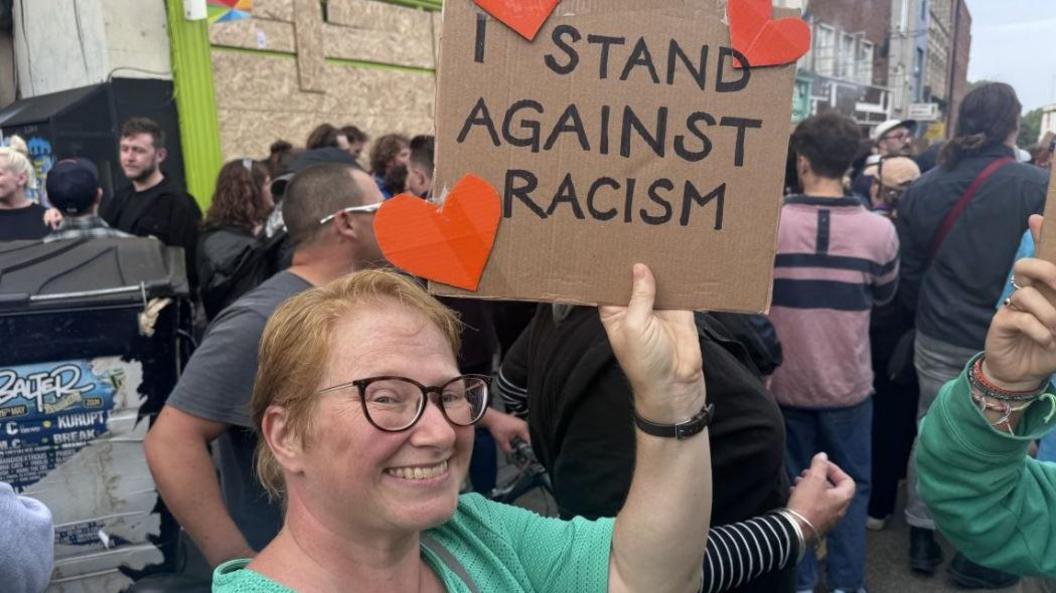How 'third hand' rumours led to riot fears
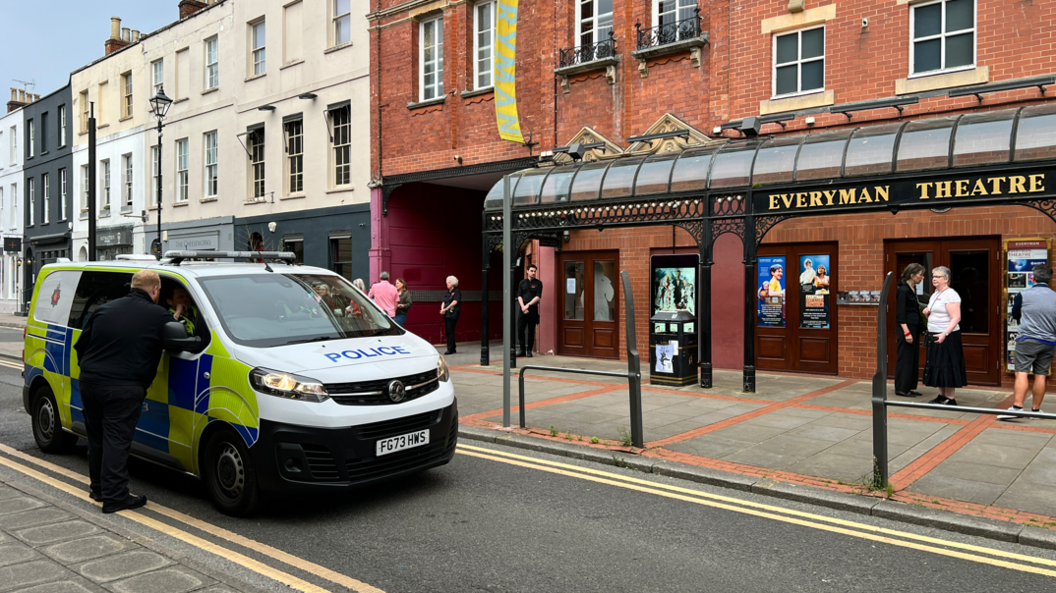
Producers cancelled a show at a Cheltenham theatre
- Published
For more than 24 hours on Wednesday there was speculation and rumours on social media of possible protests and disorder in Gloucester and Cheltenham.
Police officers were deployed, shops and businesses closed early, some pubs decided not to open and the producers of a theatre show cancelled it over safety fears.
In the end, there was nothing apart from the real world consequences of misinformation being spread widely online, with police saying the information it received was "third-hand rumour".
So how did the whispers of potential trouble spread?
Gloucester and Cheltenham were not even on the suspected map of 39 proposed targets by far-right demonstrators, which set out the addresses of immigration law firms, unlike Bristol.
Events like these are not new: false claims were spread online that the person allegedly responsible for the killing of three young girls in Southport last week was an asylum seeker who had arrived in the UK by boat.
This inaccurate information spread fast, and a riot in Southport was followed by days of tension and disorder across the country.
But this was the Facebook post on a Cheltenham Facebook group that seemingly started the rumour locally.
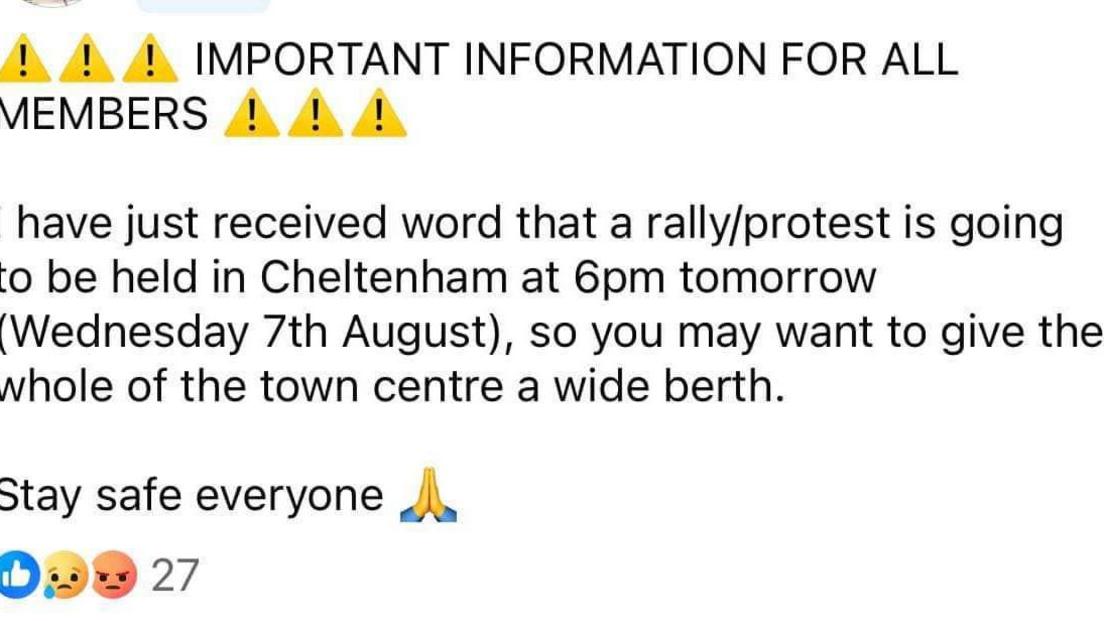
The post's content spread to other groups on social media
The original post was deleted - but by then it was shared around with multiple new posts spreading that riots were going to happen.
Facebook users also warned others to keep their kids indoors and the Cheltenham Business Improvement District even emailed its members warning of possible protests.
There was no concrete information by that point, and subsequently there were no protests or any sign of them about to happen.
City 'still as a millpond'
Justin Hudson, who runs Butlers in Gloucester and is the vice chair of Gloucester Nightsafe, was one of the many businesses who shut as a result of the rumours.
He told the BBC it was a good decision to close, and he said it was "better to be safe than sorry".
"There was definitely a mischievous vibe in the air, I went for a walk around the city and gauge the mood," he said.
"Just going off the mood of the city, I was not prepared to open Butlers and call people in for potentially there to be issue.
"We shut, and so did other licensees, and we all decided it was for the best to let the conversation die down and move on."
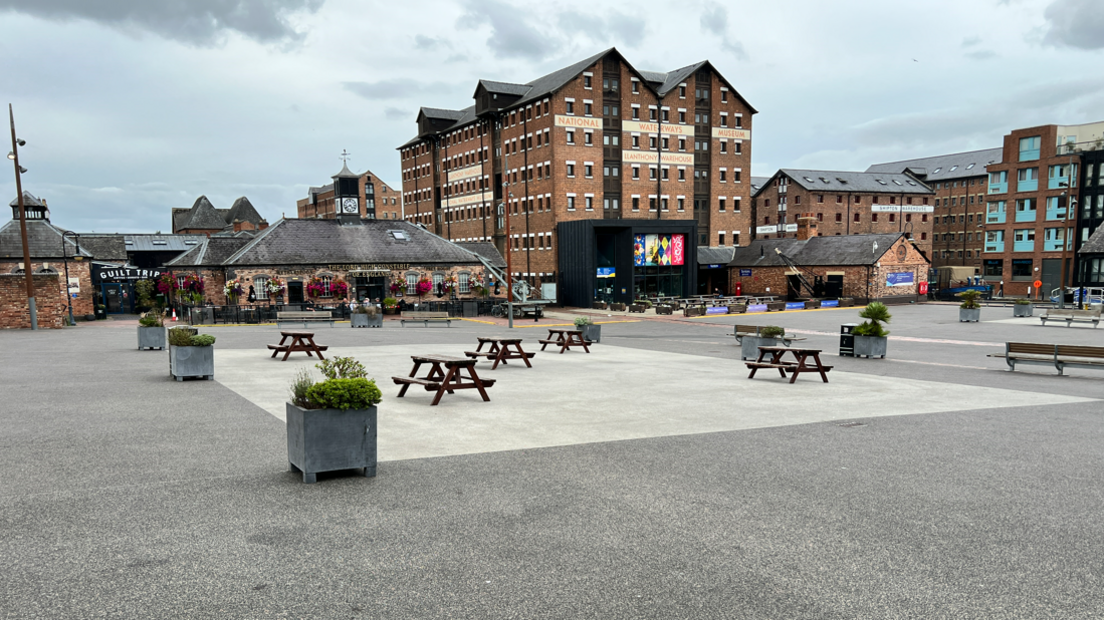
Gloucester Quays, like other parts of the city, was empty on Wednesday
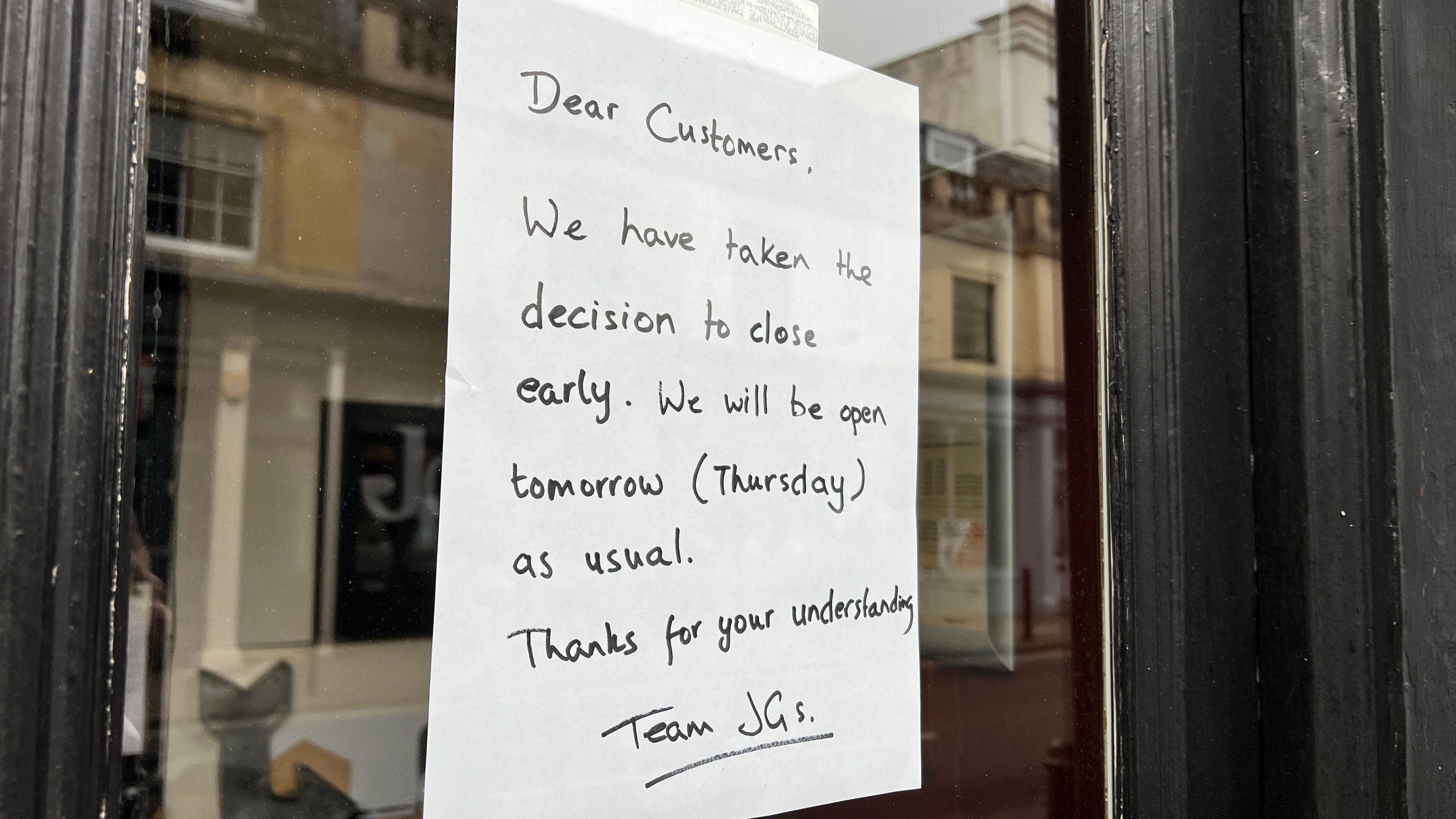
John Gordons, a bar in Cheltenham town centre, closed early
He added: "It was as still as a mill pond in the entire city, there were no people gathering on the cross.
"There was nobody boarding their windows up, we aired on the side of caution to make sure our customers, residents and staff were all safe."
Adele Owen, director of Gloucestershire Action for Refugees and Asylum Seekers, said: "Somebody actually said 'is it really not safe in the UK, do I need to find somewhere else safe?'. That's so sad, isn't it?
"But they've had to flee before, we don't want them to feel like they have to do it again. We've reassured them, we know they will be safe."
Misinformation 'like a virus'
In Bristol, thousands gathered to counter a rumoured further rally on Wednesday after online rumours spread. But far-right groups did not appear.
Dr Olivia Brown, associate professor of Digital Futures at the University of Bath, told the BBC about how misinformation was able to spread on Wednesday.
She said: "People have referred to misinformation like a viral disease in the way that it has that contagion element to it.
"A prime example of that is the false name of the Southport attacker. We've seen that around certain concerns of the protests on Wednesday.
"Maybe concerns were heightening over the course of the day because it was being shared around with other people - that can cement that fear.
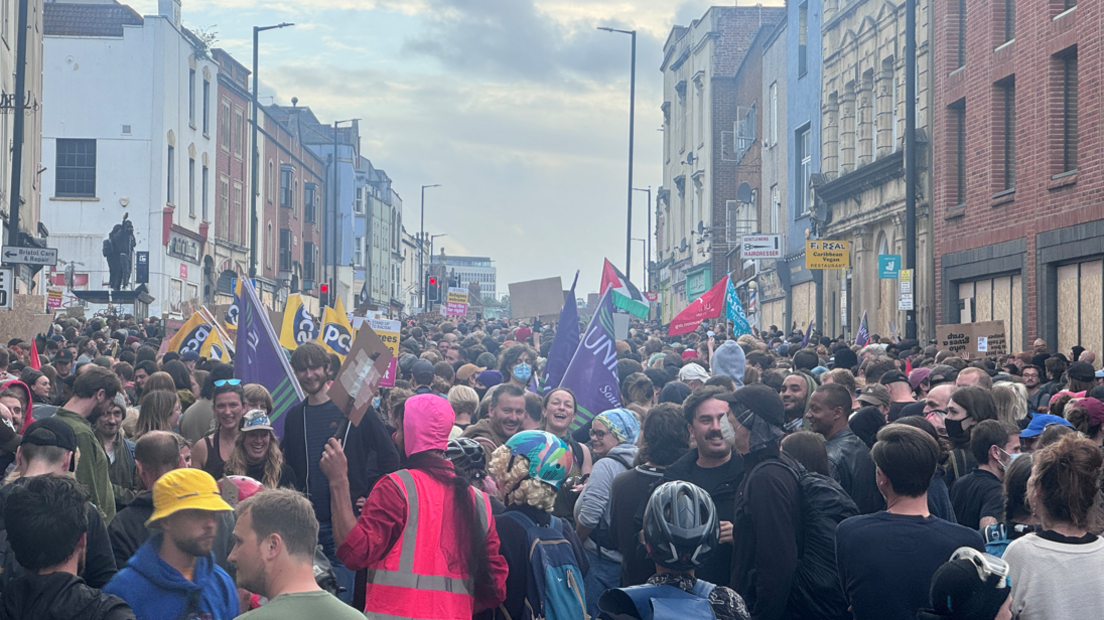
Bristol was among one of 39 targeted towns and cities, but no trouble happened on Wednesday
"People in general have been quite concerned and cautious. Understandably given the violence we saw at the weekend.
"That together could explain why we saw that messaging so pervasively, particularly some of the events in the South West."
Dr Brown outlined what questions people can ask when they read or hear information online.
She said: "We can all take some steps to consider the source of the information. Where has it come from, the content of the information? Do we really believe this to be accurate?
"Do we really need to share that information? Do we need to spread that across a platform if we're not sure of the accuracy?"
'Think twice'
Gloucestershire Police's assistant chief constable Donna Lawton said people should "look to trusted voices" if in doubt.
She said: “We monitored the situation and had resources in place to respond to any incidents if required, however there were no gatherings nor disorder last night.
“Work from our team established that some of the information was third-hand rumour rather than any factual basis.
"We know lots of disinformation has been spread on social media across the country, and we would urge people to think twice about what you read and share online.
“There are a lot of motivations for why people may be sharing information online, so be critical and question the veracity of the source."
Get in touch
Tell us which stories we should cover in Gloucestershire
Follow BBC Gloucestershire on Facebook, external, X, external and Instagram, external. Send your story ideas to us on email or via WhatsApp on 0800 313 4630.
Related topics
- Published7 August 2024
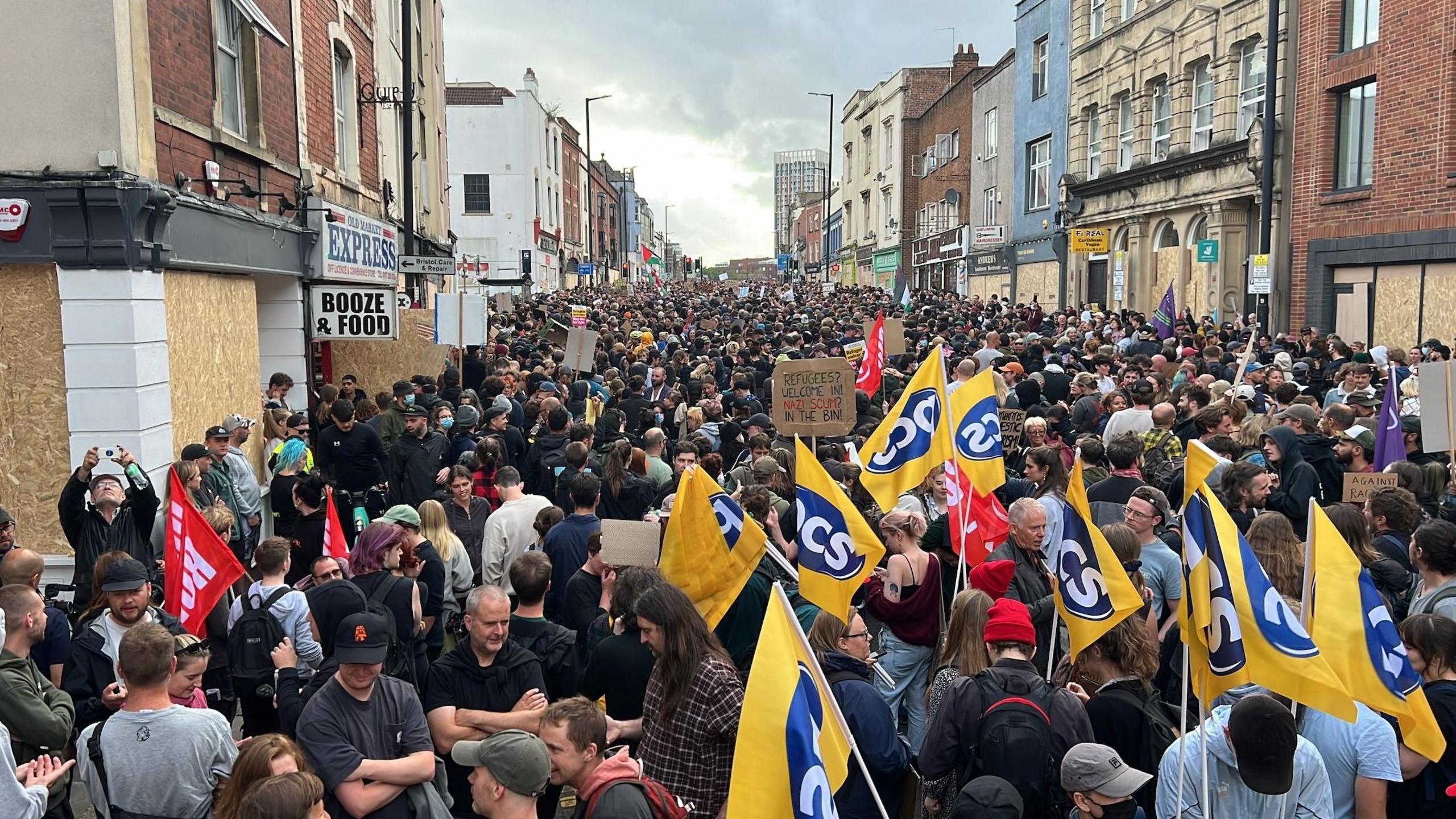
- Published9 August 2024
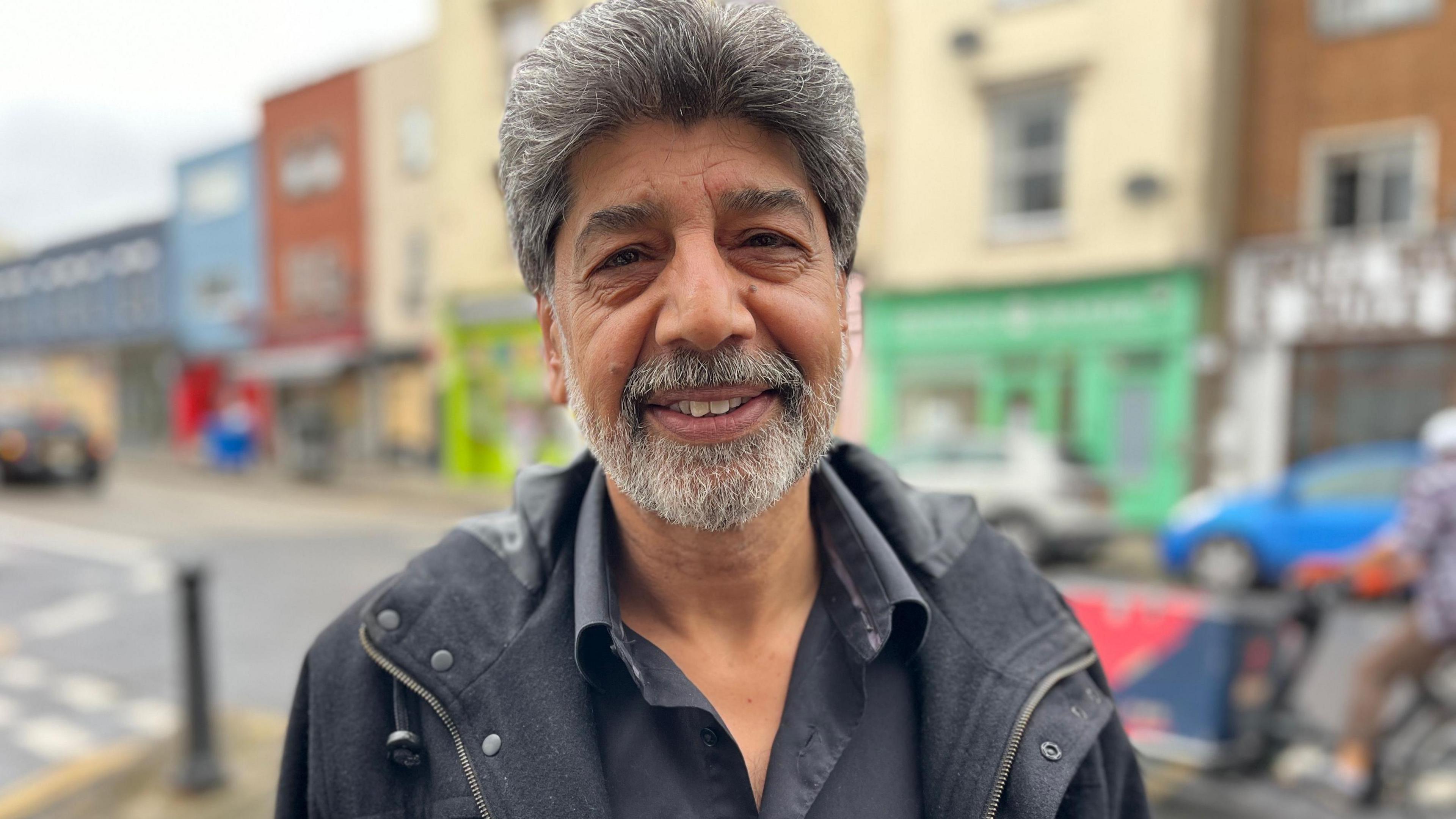
- Published8 August 2024
